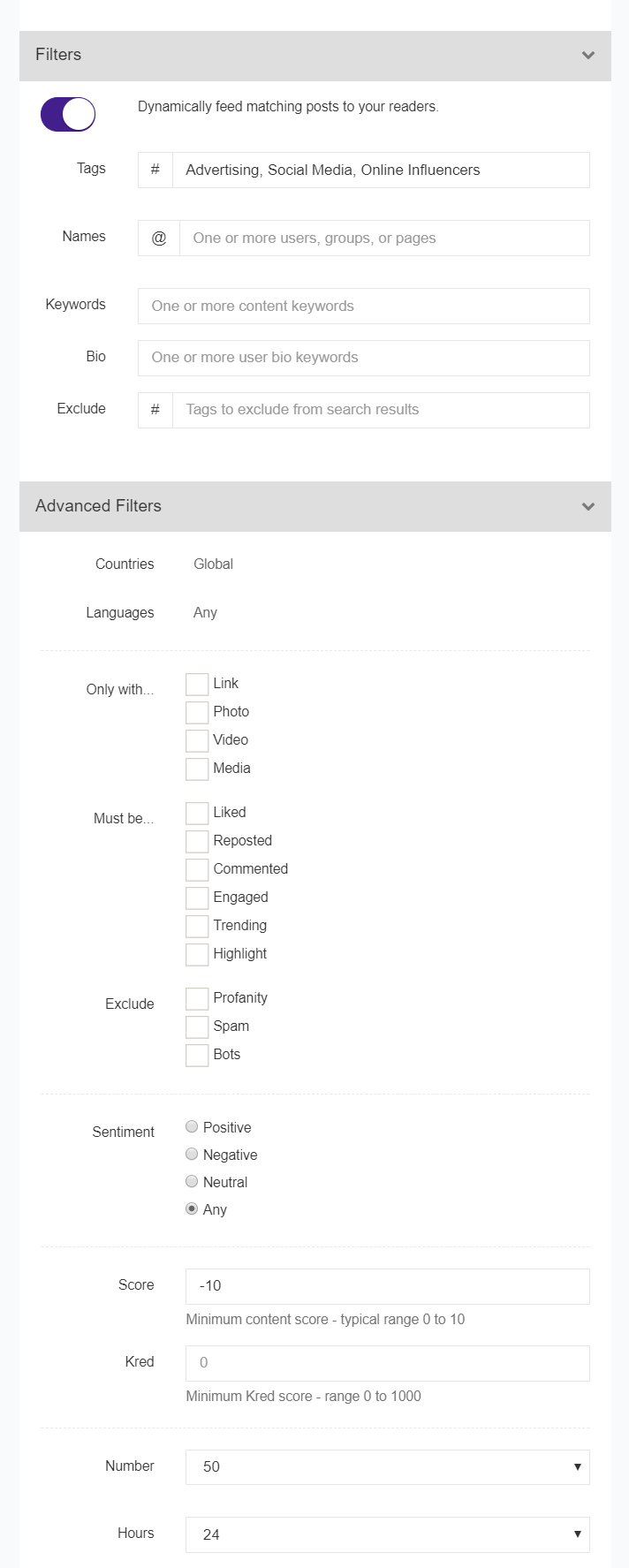Feeds
SocialOS provides a universal social networking platform for creating and
managing content and users. It also connects to existing social platforms,
to deliver the most important and engaging information to your users.
Supported social media and communication feeds include:
SocialOS also supports payment notifications and webhook integration,
including data from:
Most software development and operations tools that integrate with Slack
can also integrate unchanged with SocialOS using the Webhook API, including:
In addition, SocialOS can import data from any website or application
supporting an RSS feed, including leading news and financial organisations, or in a standardised format via REST API, Webhook, or
streaming over Websockets.
Once information has been fed into SocialOS, the whole array of filtering and
analysis tools become available. Social scoring and engagement tracking via Kred,
intelligent resharing via Grabs and Widgets, real-time engagement reporting and analysis via
the Reward Center, and more.

Grabs provide a simple model, allowing you to select, filter, and sort data base on:
- Source
- Engagement (likes, reposts, comments, shares)
- Location (country, state, city)
- Language
- Tags and keywords
- Media attachments and links
- Profanity, spam, and bot detection
- Sentiment and relevance
- Rate
- Age
The Filter Engine supports all these methods, and expands the model to
allow filtering on any combination of data or metadata fields, and deliver
the resulting content wherever you need it.
Triggers allow automated actions to be taken in real-time based on the content
of feed messages or the overall status of any part of the feed.
Federation
A federated system is a system built up of multiple, (partly) independent sub-systems that exchange data and co-ordinate operations SocialOS feeds support federation among instances by exchanging user and message information in real time.
Federation controls can be used to select which SocialOS instances to exchange data with, and what data to share with each one. User and message identities are globally unique, even across multiple instances, so source information is retained and references are consistent across the federated instances.
For more details, see these related topics.
Related Topics
API Reference
Updated 4 months ago